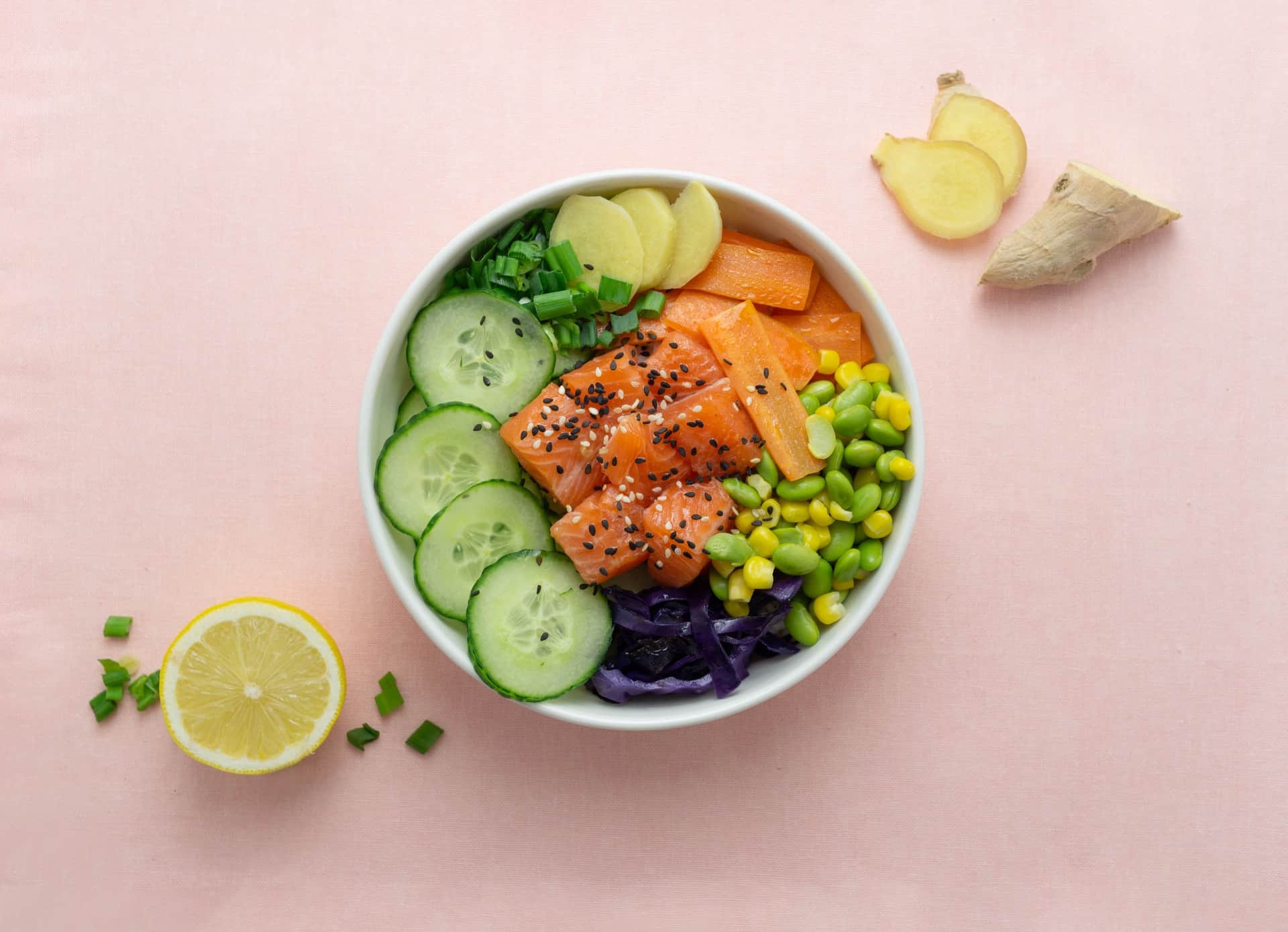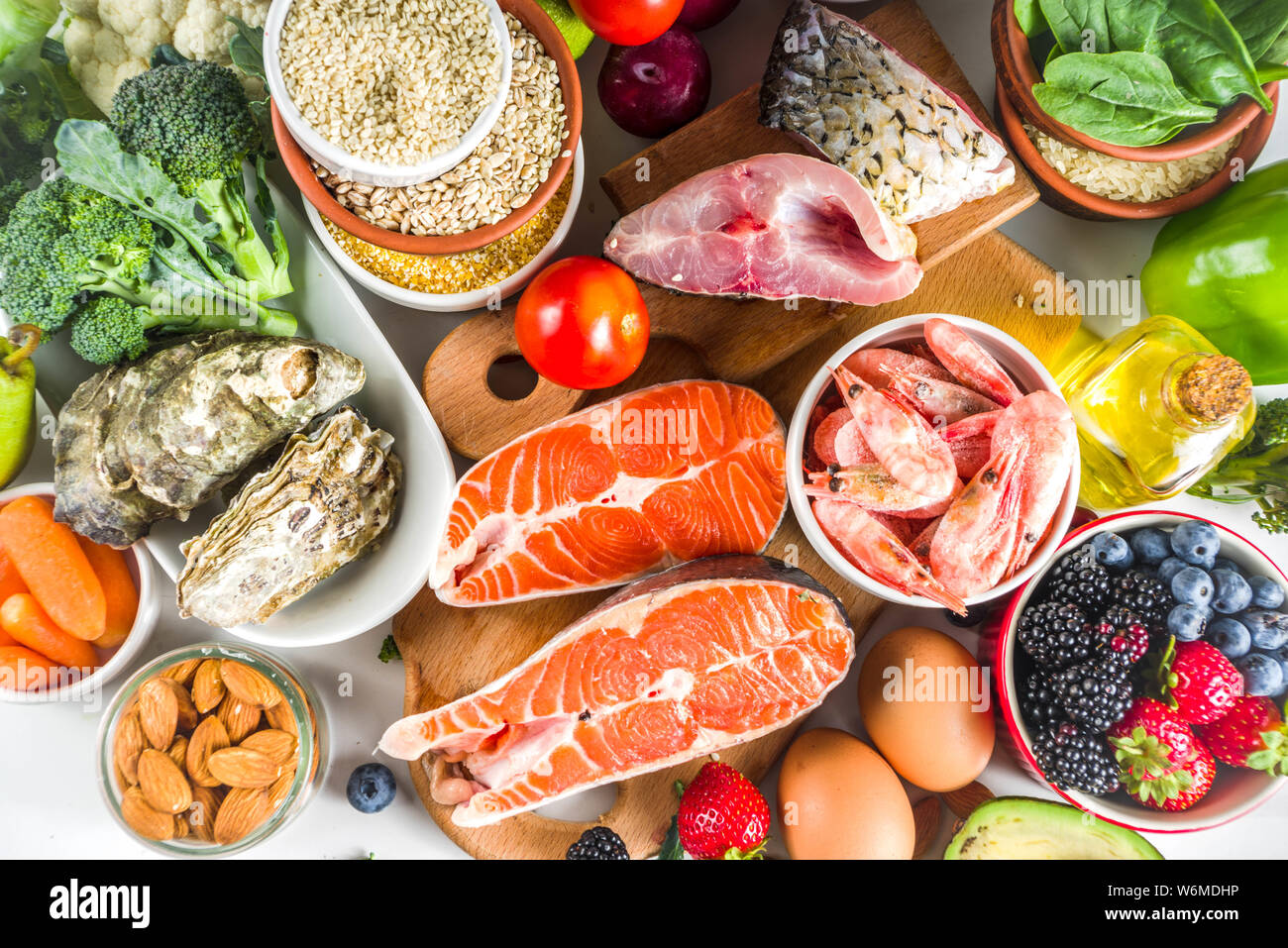Embark on a culinary journey with the healthy pescetarian diet plan, where the flavors of the sea meet the benefits of plant-based nutrition. Discover the secrets of incorporating fish and seafood into a balanced diet, unlocking a world of taste and well-being.
From the depths of the ocean to the vibrant colors of fruits and vegetables, the pescetarian diet offers a symphony of nutrients that nourish your body and tantalize your taste buds. Dive into a world of culinary delights as we explore the intricacies of this unique eating style.
Pescetarian Diet Overview
A pescetarian diet is a vegetarian diet that includes fish and other seafood. Pescetarians abstain from eating meat from land animals, such as beef, pork, chicken, and turkey, but they do eat fish, shellfish, and other aquatic animals. Some pescetarians also eat eggs and dairy products, while others avoid all animal products.
There are many health benefits to eating a pescetarian diet. Fish and seafood are excellent sources of protein, omega-3 fatty acids, and other essential nutrients. Omega-3 fatty acids have been shown to reduce the risk of heart disease, stroke, and other chronic diseases.
Fish is also a good source of vitamin D, which is important for bone health.
When investigating detailed guidance, check out vegan vegetarian and other diets now.
Pescetarian-Friendly Foods
There are many pescetarian-friendly foods available. Some of the most popular include:
- Fish: Salmon, tuna, mackerel, sardines, herring, trout, etc.
- Shellfish: Shrimp, lobster, crab, mussels, clams, oysters, etc.
- Other seafood: Squid, octopus, scallops, etc.
- Eggs (for some pescetarians)
- Dairy products (for some pescetarians)
Nutrient-Rich Foods for Pescetarians
Pescetarians can enjoy a wide range of nutrient-rich foods that provide essential vitamins, minerals, and other nutrients. These foods include fish, seafood, legumes, fruits, vegetables, and whole grains. By incorporating these foods into their diet, pescetarians can ensure they are getting the nutrients they need to maintain good health.
Get the entire information you require about vitamins for pescatarians on this page.
Some of the key nutrients found in pescetarian foods include:
- Omega-3 fatty acids: Found in fatty fish, such as salmon, tuna, and mackerel, omega-3 fatty acids are essential for heart and brain health.
- Protein: Fish and seafood are excellent sources of protein, which is essential for building and repairing tissues.
- Iron: Legumes, such as beans, lentils, and chickpeas, are good sources of iron, which is essential for carrying oxygen throughout the body.
- Vitamin B12: Found in fish, seafood, and dairy products, vitamin B12 is essential for the production of red blood cells.
- Calcium: Dairy products, leafy green vegetables, and fortified foods are good sources of calcium, which is essential for strong bones and teeth.
- Fiber: Fruits, vegetables, and whole grains are good sources of fiber, which is essential for digestive health.
Recommended Food Categories and Serving Sizes
The following table provides a comprehensive list of nutrient-rich foods suitable for pescetarians, along with their nutrient content and recommended serving sizes:
| Food Category | Nutrient Content | Serving Size |
|---|---|---|
| Fish and Seafood | Omega-3 fatty acids, protein, vitamin B12, selenium | 2-3 servings per week |
| Legumes | Protein, iron, fiber | 1/2 cup cooked per day |
| Fruits | Vitamins, minerals, antioxidants | 2-3 servings per day |
| Vegetables | Vitamins, minerals, fiber | 2-3 cups per day |
| Whole Grains | Fiber, B vitamins | 3-5 servings per day |
Meal Planning for a Healthy Pescetarian Diet
As a pescetarian, planning balanced and nutritious meals is essential to ensure you’re meeting your nutritional needs while enjoying a variety of delicious and healthy foods.
Meal variety is key, incorporating different food groups to provide a wide range of essential nutrients. Focus on consuming plenty of fruits, vegetables, whole grains, legumes, and fish. Choose lean fish options such as salmon, tuna, or mackerel, and include plant-based sources of protein like tofu, tempeh, or beans.
Sample Meal Plans
Here are some sample meal plans to help you get started:
- Breakfast:Oatmeal with berries and nuts; whole-wheat toast with avocado and smoked salmon; Greek yogurt with fruit and granola
- Lunch:Salad with grilled fish, quinoa, and roasted vegetables; lentil soup with a side of whole-grain bread; veggie burger on a whole-wheat bun with hummus and sprouts
- Dinner:Grilled salmon with roasted asparagus and brown rice; tofu stir-fry with vegetables and whole-wheat noodles; vegetarian chili with cornbread
- Snacks:Fruit, vegetables, nuts, seeds, yogurt, hummus with whole-wheat pita
Sustainable Seafood Choices: Healthy Pescetarian Diet Plan
Adopting sustainable seafood practices is crucial for preserving marine ecosystems and ensuring the availability of seafood resources for future generations. Sustainable seafood refers to seafood harvested or farmed in a way that minimizes environmental impact and maintains the health of aquatic ecosystems.
Choosing sustainable seafood options contributes to reducing overfishing, protecting endangered species, and preserving marine biodiversity. By supporting ethical fishing practices, you promote responsible fishing methods that minimize bycatch, habitat damage, and pollution.
Seafood Sustainability Certifications, Healthy pescetarian diet plan
- Marine Stewardship Council (MSC):Certifies wild-caught seafood that meets sustainability standards.
- Aquaculture Stewardship Council (ASC):Certifies farmed seafood that adheres to environmental and social responsibility criteria.
- Best Aquaculture Practices (BAP):Provides certification for farmed seafood that meets environmental, social, and food safety standards.
Tips for Choosing Sustainable Seafood
- Check for certifications:Look for seafood with MSC, ASC, or BAP certifications to ensure sustainability.
- Choose local and seasonal seafood:Opt for seafood caught or farmed near you to reduce transportation emissions.
- Avoid overfished species:Consult reliable sources like the Monterey Bay Aquarium Seafood Watch to determine which species are overfished and should be avoided.
- Support small-scale fisheries:Choose seafood from small-scale, artisanal fisheries that use sustainable fishing methods.
- Ask questions:Engage with seafood providers and ask about the origin and fishing practices used to catch or farm the seafood.
Potential Health Concerns and Considerations
A pescetarian diet offers many health benefits, but it’s important to be aware of potential health concerns and limitations. Consulting with a healthcare professional before making significant dietary changes is crucial.
Understand how the union of sources of protein for pescatarians can improve efficiency and productivity.
One potential concern is the risk of nutrient deficiencies, such as vitamin B12, which is primarily found in animal products. Pescetarians may need to consume fortified foods or supplements to ensure adequate intake.
Obtain direct knowledge about the efficiency of best veggies to eat on a diet through case studies.
Allergies and Intolerances
Some individuals may have allergies or intolerances to fish or seafood. It’s essential to be aware of these allergies and avoid consuming the specific types of fish or seafood that trigger reactions.
Conclusive Thoughts
As you bid farewell to this pescetarian adventure, remember the transformative power of mindful eating. By embracing the ocean’s bounty and the earth’s abundance, you’ve embarked on a journey towards a healthier, more vibrant you. May your meals continue to inspire, nourish, and bring joy to your life.
Top FAQs
What are the key benefits of a pescetarian diet?
A pescetarian diet offers numerous health advantages, including reduced risk of heart disease, improved brain function, and lower inflammation.
Is it challenging to follow a pescetarian diet?
With careful planning and a willingness to explore new flavors, following a pescetarian diet can be both enjoyable and rewarding.
Are there any potential drawbacks to a pescetarian diet?
As with any dietary change, it’s essential to consult with a healthcare professional to address any specific nutrient deficiencies or allergies.


